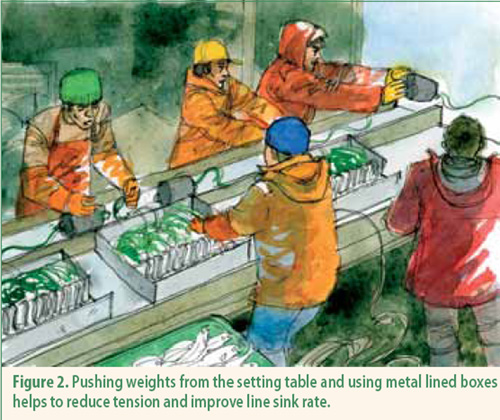Dimas Gianuca (Environment and Sustainability Institute - University of Exeter, Penryn, UK) and colleagues have published a note in the Brazilian Journal of Oceanography on whether fishing lights can make longline hooks sink faster.
The note concludes:
“… our results indicate that the addition of EFL [electric fishing lights] did not improve substantially the sink rate of baited hooks, hence they do not support the hypothesis raised among fishermen that the utilization of EFL would help mitigate seabird mortality. EFLs should not therefore be interpreted as a measure for mitigating seabird bycatch, and should always be utilized in combination with one of the line-weighting regimes recommended by ACAP and ICCAT best practices guides.”

Reference:
Gianuca, D., Rodrigo Sant'Ana, R. & Neves, T. 2016. Influence of electric fishing lights on sink rates of baited hooks in Brazilian pelagic longline fisheries: implications for seabird bycatch. Brazilian Journal of Oceanography 64. http://dx.doi.org/10.1590/S1679-87592016092306401.
John Cooper, ACAP Information Officer, 15 June 2016

 English
English  Français
Français  Español
Español